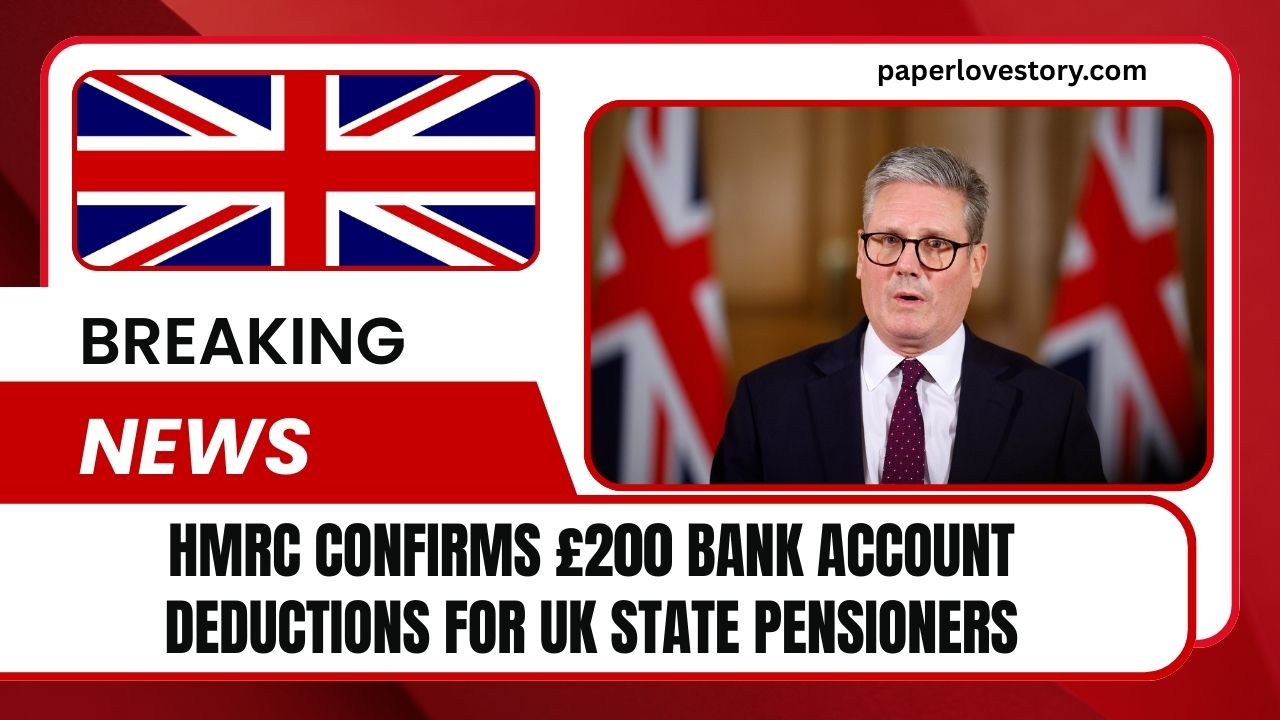The UK Government has confirmed a new Winter Fuel Payment system for 2025/26, and it comes with a big change that could leave many state pension claimants out of pocket.
While pensioners will initially receive payments worth £200 or £300, HMRC has clarified that not everyone will be able to keep this money.
Those with incomes above £35,000 will see the payment automatically deducted from their accounts through the tax system.
The announcement has sparked strong reactions across the country, with millions of seniors checking whether they qualify.
Here’s everything you need to know about who gets the Winter Fuel Payment, who will have to pay it back, and how the system will work this year.
What Are the Winter Fuel Payments?
The Winter Fuel Payment is a yearly benefit designed to help pensioners with heating costs during the cold season. It is paid automatically to eligible people, with amounts depending on age:
- £200 for pensioners under 80
- £300 for pensioners aged 80 and above
This year, the government expanded eligibility after backlash against cuts in 2024, meaning millions more pensioners will receive the support.
However, a new income-based rule has been introduced, meaning some will not keep the payment.
The New Income Rule – Who Qualifies?
Under the 2025/26 system, eligibility depends on total taxable income:
- Pensioners with an income below £35,000 will keep the full Winter Fuel Payment.
- Pensioners with an income above £35,000 will still receive the money, but HMRC will claim it back through the tax system.
This means the payment is no longer universal—it is now effectively means-tested for higher earners.
How HMRC Will Deduct the Money
The government has outlined a clear process:
- Initial payment: Pensioners will receive the Winter Fuel Payment (£200 or £300) into their bank account as usual.
- Tax system adjustment: HMRC will later recover the money.
- For those on PAYE, the deduction will be taken automatically from wages, pensions, or annuities in the 2026/27 tax year.
- For those in self-assessment, the Winter Fuel Payment will be added to their 2025/26 tax return and deducted that way.
Opting Out Before September 15, 2025
To avoid receiving the payment and later paying it back, pensioners with incomes over £35,000 have the option to opt out.
- Deadline: September 15, 2025
- How: Contact HMRC or use the online income checker tool.
- Why: Opting out saves the hassle of automatic deductions through PAYE or self-assessment.
Voices From Experts
Katherine Ford, ICAEW tax manager, reminded pensioners:
- The opt-out must be done by September 15, 2025.
- If not, the £200/£300 will be recovered automatically by HMRC.
- Pensioners should use the online income tool to check if they exceed the £35,000 limit.
Why the Change?
The government argues the reform is about fairness and sustainability. With millions of retirees and rising pension costs, the aim is to target support at those most in need.
- Incomes under £35,000: Pensioners are considered more vulnerable and keep the full benefit.
- Incomes over £35,000: Seen as having greater financial stability, meaning the Winter Fuel Payment is clawed back.
Key Facts at a Glance
| Category | Detail |
|---|---|
| Payment Value | £200 (under 80s), £300 (over 80s) |
| Income Limit | £35,000 total taxable income |
| Who Keeps It? | Pensioners earning below £35,000 |
| Who Pays It Back? | Pensioners earning above £35,000 |
| Opt-Out Deadline | September 15, 2025 |
| How Deducted | PAYE (2026/27 tax code) or self-assessment (2025/26 return) |
| Reason for Change | Government targeting support at lower-income pensioners |
Millions of Seniors Affected
The new rule means millions of pensioners will get the money upfront, but those on higher incomes will face clawbacks.
For some, this could feel like an unfair surprise when their tax code is adjusted next year.
However, lower-income pensioners will benefit from guaranteed support and from the government’s U-turn after public anger last year when eligibility was temporarily restricted.
What Pensioners Should Do Now
- Check income level – Use HMRC’s online tool to confirm if you fall below or above £35,000.
- Decide whether to opt out – If you’re above the threshold, consider opting out before September 15, 2025.
- Prepare for deductions – If you keep the payment and earn more than £35,000, expect a tax adjustment in the next financial year.
- Budget accordingly – Don’t spend the Winter Fuel Payment immediately if you expect HMRC to recover it later.
The Winter Fuel Payment 2025/26 marks a new chapter in the way the government supports pensioners.
While the headline news is positive—millions more will receive £200 or £300 this winter—the reality is that higher-income pensioners will not keep the money.
\With an income cap of £35,000, HMRC will automatically deduct payments through PAYE or self-assessment.
For retirees living on modest means, the system offers welcome help with heating bills. But for those above the threshold, this feels like a temporary gift with a built-in repayment clause.
The message from the government is clear: support will continue, but it will be increasingly targeted at those most in need.
FAQs
How much will pensioners get under the Winter Fuel Payment?
Pensioners under 80 will receive £200, while those over 80 will receive £300.
Who has to pay the money back?
Anyone with an income over £35,000 will have the payment clawed back automatically by HMRC through PAYE or self-assessment.
Can I avoid getting the payment if I don’t qualify?
Yes. Pensioners above the threshold can opt out by September 15, 2025 to avoid later deductions.
